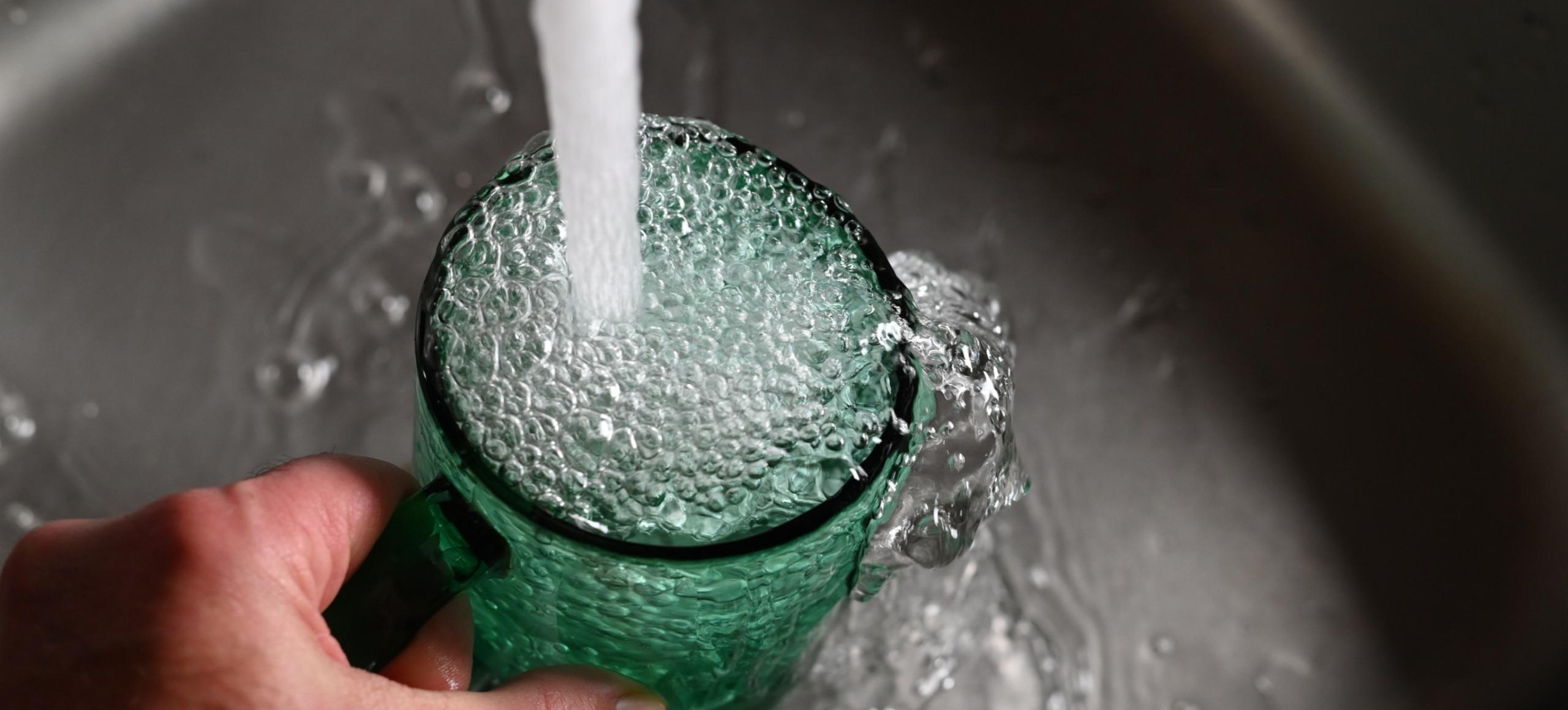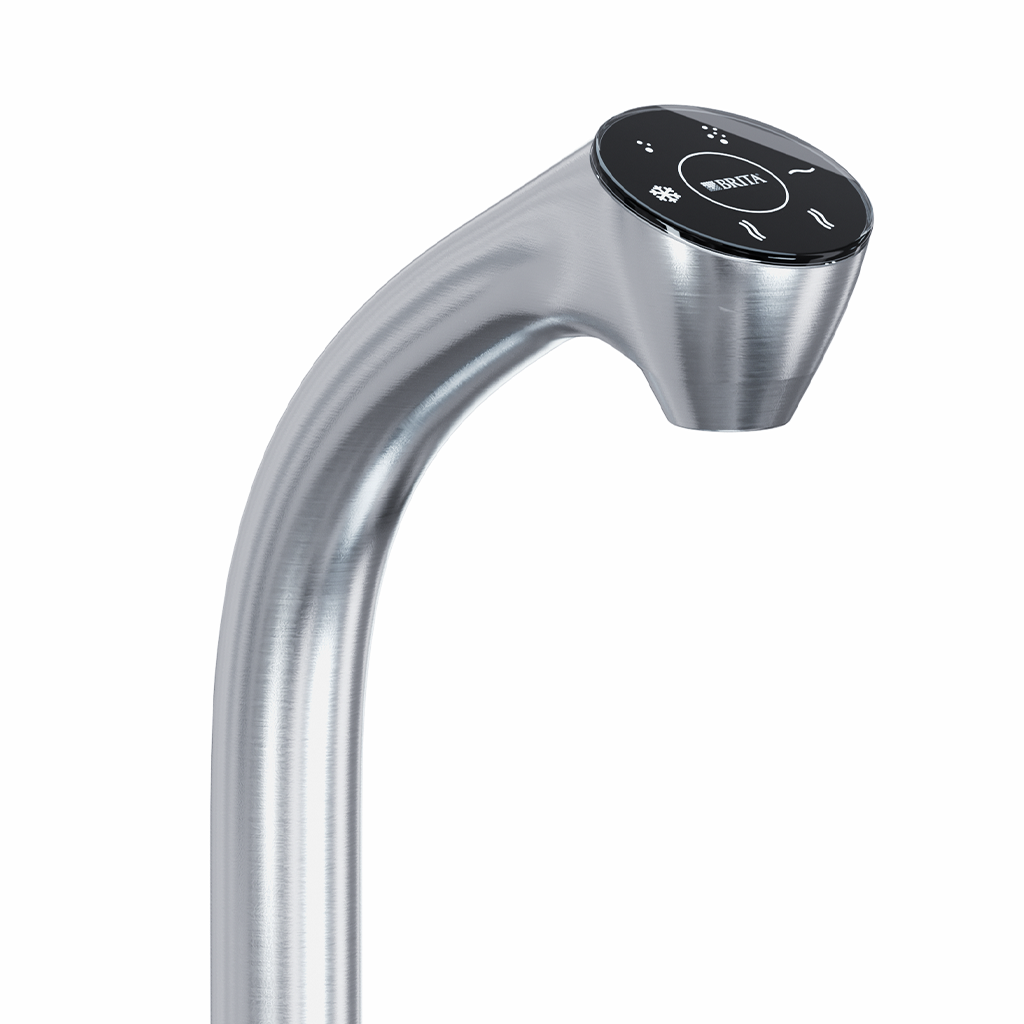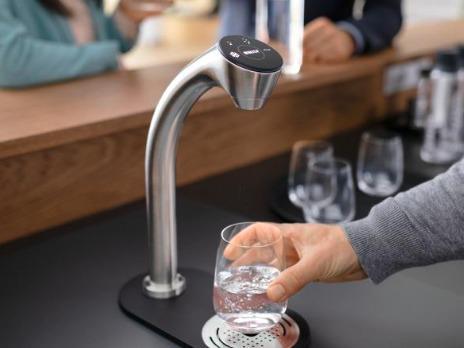We all know that opting for a drink from the tap is the most environmentally friendly and cost-efficient way to quench your thirst. However, how safe is tap water in the UK in terms of added chemicals? We look at what can be commonly found in UK water supplies, as well as which regions are said to offer the best tasting tap water.
Is Tap Water Safe to Drink in the UK?
UK tap water
If the kitchen sink tends to be your regular watering hole, you’re in safe hands. British tap water is said to be one of the best water supplies in the world, with a quality rating of 99.96% according to Discover Water. This quality is regularly monitored by the Drinking Water Inspectorate (DWI) to ensure our water is both clean and safe to drink. During these regulations, the DWI search for things such as E.coli and other bacteria across reservoirs in the UK, access the full report here.
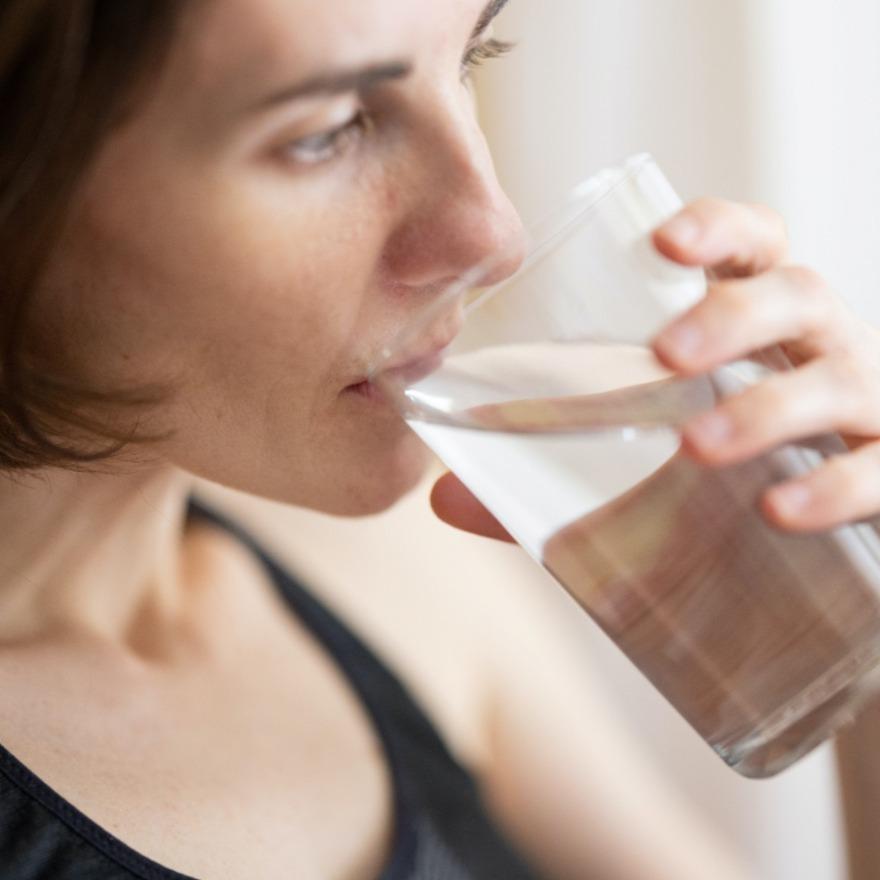
Best UK locations for tap water
While tap water across the UK is safe to drink, quality may differ by region. For example, a 2020 taste test from a survey by Tapp Water. Its findings revealed that the top 5 UK locations for water, based on participant's opinions, were:
- Scotland
- South West (Bristol)
- Yorkshire and the Humber (Leeds)
- Northern Ireland (Belfast)
- Wales (Cardiff)
It also revealed the 5 worst places across the UK for tap water taste. Which all happened to be areas with ‘hard’ water, these were:
- East of England (Norwich)
- East Midlands (Leicester)
- South East (Southampton)
- Greater London (London)
- West Midlands (Birmingham)
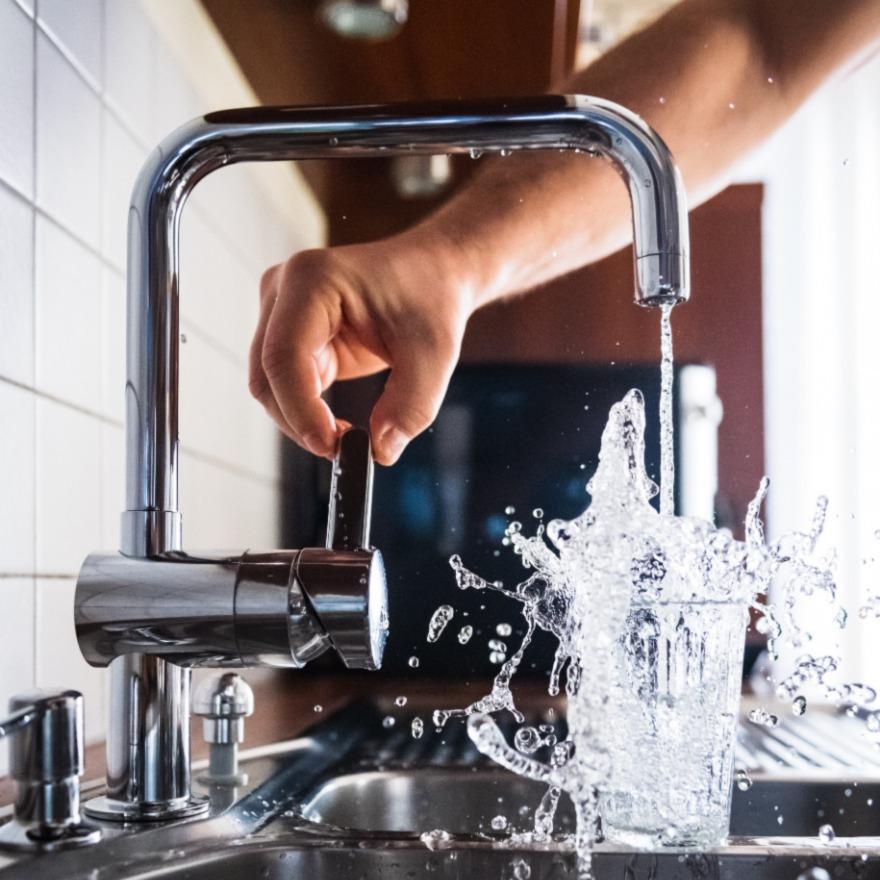
Hard water vs. soft water
You may have heard the terms ‘hard’ and ‘soft’ water before. Hard water refers to water that has a high mineral content and is often found in the South and East of England.
This is created through a combination of limestone and chalk, which may give it a cloudy appearance. While no health risks, hard water may not taste as nice as soft water, which typically features in the North and West.
If you’re unsure whether your water falls under the hard or soft category, use our water hardness test.
What's in UK tap water?
Whether your area has hard or soft water, certain minerals are likely to be inevitable within your tap water. While some chemicals are naturally found within your water supply, others are deliberately added to improve the quality. The most common chemicals in UK tap water include:
Chlorine
If you spend time at your local swimming pool, you’ll know that chlorine is completely safe. It’s typically added to water supplies as a natural agent to kill harmful bacteria. While there are no health risks associated with chlorine, it can often come with a certain taste or smell if found in high concentrations.
Limescale
Limescale is naturally found in most water supplies, particularly in areas with hard water. This is made up of calcium and magnesium carbonate and occurs when water is heated. This is why you often find limescale in the bottom of your kettle. Although this chalky substance might look unsightly, it’s not harmful to drink.
Fluoride
Most often found in your toothpaste, fluoride can also be present in your water supply. This can occur naturally but is also sometimes artificially added. As it is proven to reduce tooth decay, schemes adding fluoride to UK mains water have been in place for nearly 60 years, according to Aqua Cure.
That being said, it’s a chemical that’s met with a lot of controversies, as excessive fluoride can lead to dental and skeletal fluorosis. Therefore, no new fluoride schemes have been approved within the last 20 years and current fluoride levels are closely monitored to ensure safety.
Lead
While chlorine, limescale, and fluoride are all expected to be in tap water, certain chemicals can appear that have harmful effects when ingested. Although lead is rarely found in water, it can sometimes be absorbed from old pipes and is highly poisonous when ingested. If you live in an area with soft water, you’re more at risk of this, as hard water usually features more limescale which typically blocks lead contamination.
Tap water advice
There’s often a lot of confusion when it comes to dos and don’ts with tap water. To help shed some light here are some common questions answered.
Can you drink from the bathroom tap?
Yes, unless you’re in a public space and there’s a sign telling you not to do so, bathroom tap water is safe to drink as this comes from the same supply as your kitchen sink.
Can you drink from a warm tap?
It’s usually advised to avoid drinking from the warm tap. Although not particularly harmful this water may not be as fresh as the cold tap as it could come from a water heater or storage tank.
What if my tap water is cloudy?
Cloudy tap water often occurs and is usually caused by air trapped in pipes or dissolved chalk deposits. This is often the case for areas in the South of England. Although it may not look appealing, chalky water is nothing to worry about.
What about bottled water?
It’s a common misconception that bottled water is safer than tap water. While this may be the case in other countries, UK tap water undergoes daily checks, whereas bottled water is only tested once a month, making it more regulated. As well as this, opting for tap water instead of bottled water is also kinder to the environment and your wallet.
Should you filter your tap water?
As water supplies are consistently regulated in the UK, water filters are not essential. However, if you’d like to improve the quality of your water or even just the taste, consider a water filter to reduce limescale and offer a fresher supply. Water filters are particularly useful to those who live in hard water areas, as it can improve the purity and the appearance of your water. With a BRITA tap, or water dispenser, there are further benefits to filtering your water too, as our taps offer a range of water options. For instance, if you love sparkling water but want to reduce your plastic bottle use, why not check out our sparkling water dispenser?
Want to learn more about water filters? Read our consumer guides.
If you would like to talk more, contact us. Otherwise you can view our range of water dispensers here.


